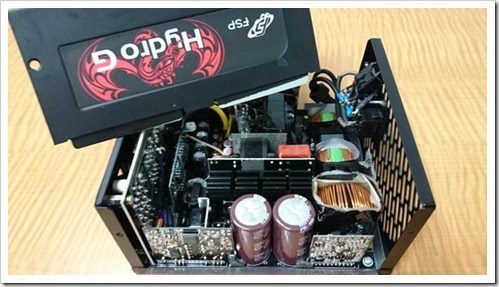Capacitors can hold a charge for a few seconds to several hours, depending on their size and capacity. Capacitors have the ability to store an electrical charge, but the duration of this charge depends on various factors.
The size and capacity of the capacitor play a major role in determining how long it can hold a charge. Smaller capacitors with lower capacitance generally hold a charge for a shorter period, typically a few seconds. On the other hand, larger capacitors with higher capacitance can hold a charge for several hours.
Factors such as temperature, leakage, and the type of dielectric material used also affect the duration of how long capacitors can hold a charge. Understanding the characteristics and limitations of capacitors is crucial when designing electronic circuits and systems.
Understanding Capacitors
Capacitors are electronic components that store and release electrical energy. They are frequently used in various devices, including computers, automobiles, and cameras. These powerful little devices store energy by accumulating a charge on their two plates. When a voltage is applied to the capacitor, the charge builds up until it reaches its maximum capacity.
Capacitors can hold a charge for different periods of time, depending on their size and the materials used. Larger capacitors tend to hold a charge for longer periods, while smaller capacitors discharge more quickly. It is important to discharge capacitors properly before handling them to avoid any risk of electric shock.
Understanding the function and behavior of capacitors is crucial in the field of electronics and electrical engineering.
Factors Influencing Capacitor Discharge Rate
The discharge rate of capacitors is influenced by various factors, including the type and construction of the capacitor. Capacitor voltage and capacitance also play a role in determining how long a capacitor can hold a charge. Temperature can affect the discharge rate, with higher temperatures generally resulting in faster discharge.
Additionally, external influences, such as the presence of other components or circuitry, can impact the rate at which a capacitor discharges. By considering these factors, one can better understand how long capacitors can hold a charge in different situations. Ultimately, a thorough understanding of the various factors that affect the discharge rate of capacitors is essential in designing and utilizing electronic circuits effectively.
Digging Deeper Into Capacitor Discharge Timeframes
Capacitors have different discharge timeframes depending on their type. Electrolytic capacitors are known for short-term discharge. Ceramic and tantalum capacitors also fall into this category. Moving on to medium-term discharge, film capacitors and supercapacitors can hold their charge for a bit longer.
Finally, there are capacitors with long-term discharge capabilities, such as paper, oil-filled, and mica capacitors. These capacitors can retain their charge for extended periods. It’s essential to understand the discharge timeframes of different capacitor types, as it impacts their functionality in various electronic systems.
By considering these timeframes, engineers and technicians can make informed decisions when selecting capacitors for specific applications.

Credit: www.thedailyworld.com
Real-World Applications And Examples
Capacitors are widely used in various electronic devices to store and release electrical energy. For example, smartphone batteries incorporate capacitors to ensure smooth power supply and prevent sudden voltage drops. Flashlights and other battery-operated devices also employ capacitors to maintain consistent brightness.
In industrial applications, capacitors play a crucial role in maintaining stable power supply and preventing interruptions in sensitive equipment. Capacitors are also indispensable in power grids, as they help stabilize voltage fluctuations and ensure efficient distribution of electricity. Additionally, capacitors are vital in the startup of DC motors, enabling them to quickly reach optimum speed.
Moreover, capacitors are used for energy storage in applications where short-term bursts of power are required. From smartphones to power grids, capacitors serve essential purposes in our daily lives and various industrial sectors.
Extending Capacitor Discharge And Shelf Life
Capacitors are capable of holding a charge for varying durations. The shelf life of capacitors can be extended with proper storage and handling techniques. Capacitor leakage and self-discharge are some factors that can affect the holding time. Avoiding overused phrases and repetitive terms, reconditioning and reforming can also help increase the lifespan of capacitors.
By following these guidelines, capacitors can maintain their effectiveness and reliability for a longer duration. So, understanding the factors that influence capacitor discharge and adopting the necessary precautions are essential for efficient use of these electronic components.
Frequently Asked Questions For How Long Do Capacitors Hold A Charge
Can A Capacitor Hold A Charge For Years?
Yes, capacitors can hold a charge for years. They can retain electrical energy for long periods.
How Long Does It Take For Capacitor To Lose Charge?
Capacitors can lose their charge quickly, typically within a few seconds to minutes.
How Long Does A Capacitor Charge?
A capacitor charges in a specific time period, depending on its capacitance and the charging voltage.
Do Capacitors Run Out Of Charge?
Yes, capacitors gradually lose their charge over time due to a natural discharge process.
Conclusion
Capacitors are essential components in various electronic devices, as they play a crucial role in storing and releasing electrical energy. Understanding how long capacitors hold a charge is vital for safe and efficient operation. Capacitors can hold a charge for a varying duration depending on several factors, including capacitance, voltage, temperature, and leakage current.
Large capacitors with high capacitance values tend to hold a charge for a longer time, while small capacitors may discharge more quickly. Additionally, the voltage and temperature can affect the discharge rate. It is important to note that capacitors have the potential to cause electric shock if mishandled.
Therefore, proper understanding and precautions must be taken when working with capacitors. By knowing how long capacitors hold a charge and taking necessary safety measures, you can ensure their effective use and minimize potential risks in electronic systems.
- How Much Does a Ford 9N Tractor Weigh - May 20, 2024
- How Many of My Exact Car were Made: Uncovering the Rarity - May 20, 2024
- How to Find Out What Someone Drives: Discover the Truth - May 20, 2024

